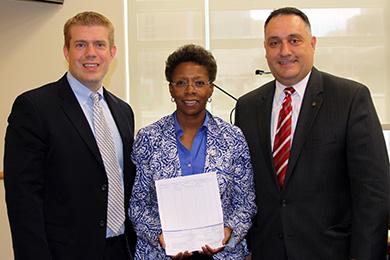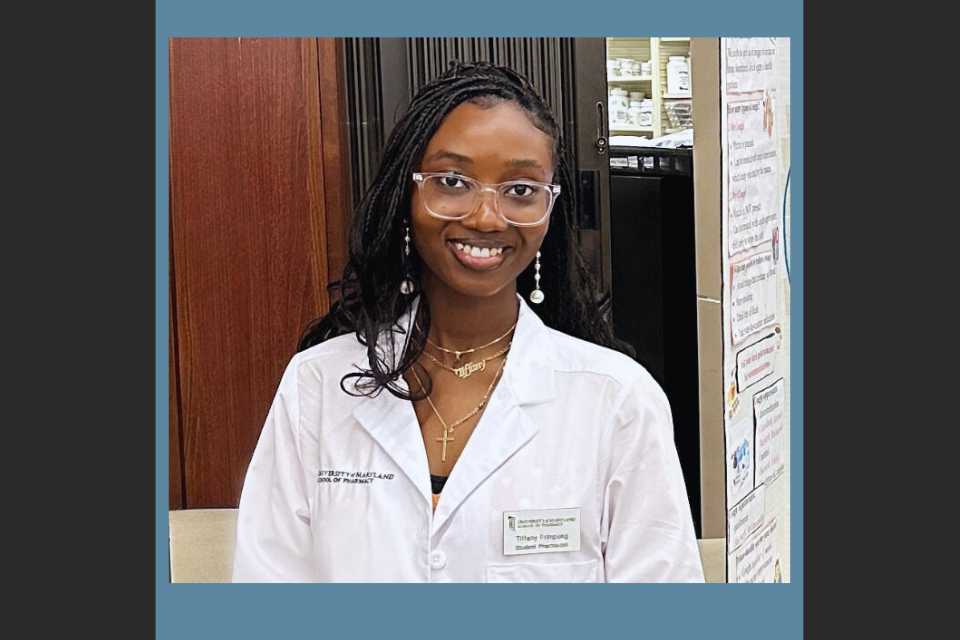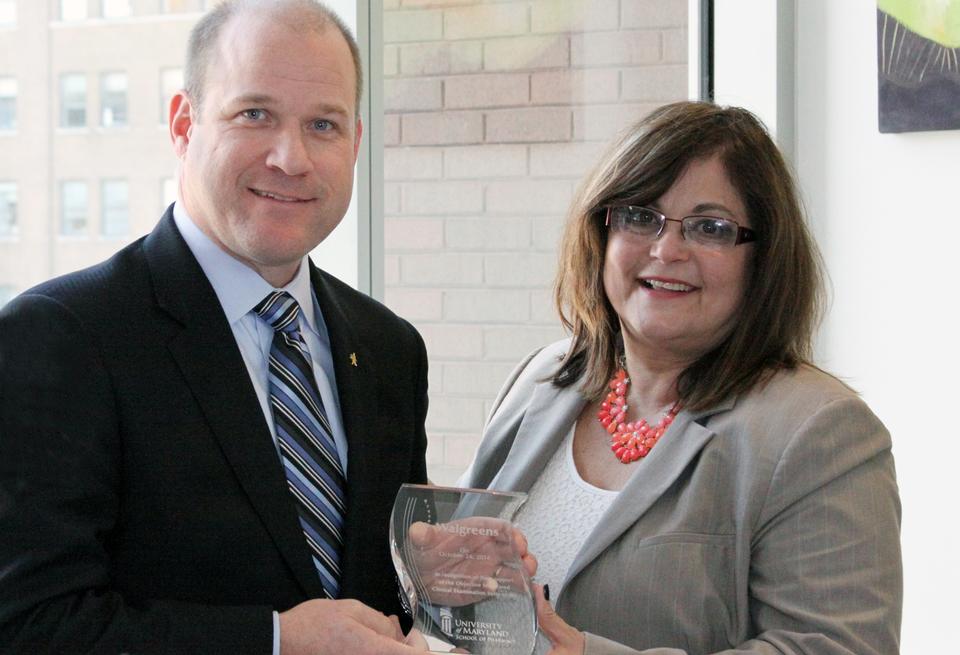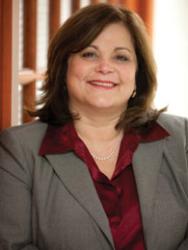Walgreens Donates $350,000 to School of Pharmacy
Gift will name the School’s Objective Structured Clinical Examination (OSCE) Suite.

By Malissa Carroll
August 18, 2014
Walgreens, the nation’s largest drugstore chain, has presented a gift of $350,000 to the University of Maryland School of Pharmacy. The gift will name the Walgreens Objective Structured Clinical Examination (OSCE) Suite at the School, a 10-room, state-of-the-art facility designed to provide an experience that demonstrates the pharmacist’s expanding role in direct patient care and medication therapy management (MTM).
“The School of Pharmacy strives to promote effective and innovative pharmacy practice models that have a positive impact on patient outcomes,” says Natalie D. Eddington, PhD, FCP, FAAPS, dean and professor of the School and executive director of University regional partnerships. “Our OSCE suite is outfitted with the latest technologies to provide practice experiences that expose students and community pharmacists alike to real world clinical situations. This generous gift signifies Walgreens’ belief in the value that this unique facility has in preparing current and future pharmacists with the knowledge and skills necessary to work collaboratively and at the top of their licensure in an interprofessional health care environment.”
Jon Reitz, market pharmacy director for Walgreens, and Steve Bouyoukas, PharmD ‘00, Baltimore pharmacy supervisor for Walgreens, visited the School on June 19 to present the gift, which will ensure that the innovative transitional development and training programs available through the OSCE suite continue to advance clinical education for future students and community pharmacists.
“We’re proud to have the Walgreens name on this great facility, as a reflection of the company’s commitment to advancing the role of community pharmacy, and supporting pharmacists who will have a positive impact on the future of the profession,” says Reitz. “It enables the kind of education and training that can truly prepare pharmacists for entering the workforce, as today, pharmacists are playing an increasingly important role in health care, providing a broader scope of services and working collaboratively with other providers in the community.”
During their visit, Reitz and Bouyoukas spoke with Eddington and several faculty members from the Department of Pharmacy Practice and Science (PPS). They also received a tour of the OSCE suite, where professional actors serve as standardized patients and as evaluators of student performance in specific pharmaceutical care encounters.
An OSCE advisory committee led by Katie Kiser, PharmD, BCPS, assistant professor in PPS, oversees education and administrative responsibilities for the facility.
“The changing role of the pharmacist requires a unique skillset that promotes successful pharmacist-patient interaction,” says Kiser, who attended the meeting with Reitz and Bouyoukas. “The OSCE suite is designed to train and, at the same time, assess the ability of participants to reflect on their experiences with patients and receive feedback. Through our collaborative relationship with Walgreens, we hope to establish a positive feedback loop between lessons in the classroom and lessons in a real world pharmacy setting. The feedback that we receive will not only influence student training, but also help strengthen curriculum development, ensuring that our students receive the highest quality education to prepare them to meet the evolving needs of one of the most dynamic health care professions.”
An official naming ceremony for the Walgreens OSCE Suite will be held in Fall 2014.



